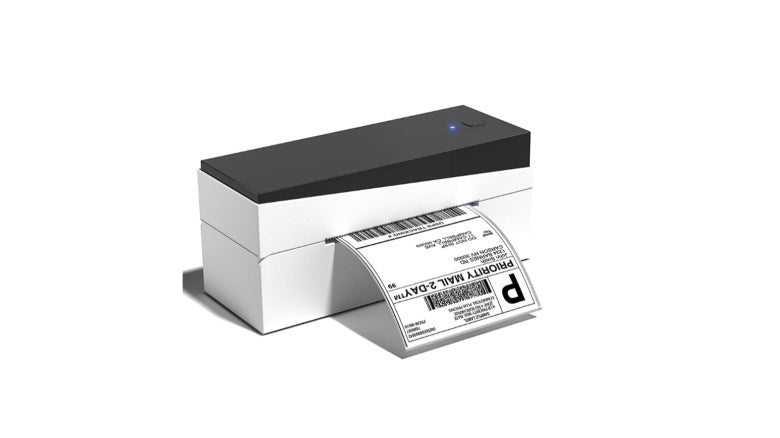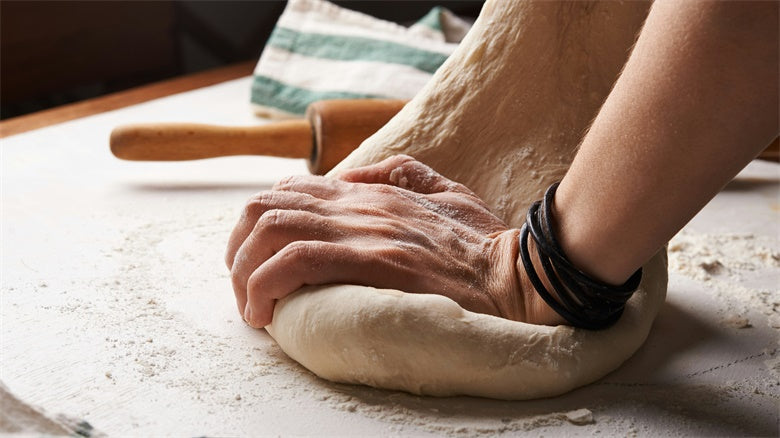- Find Your Niche
- Check the Health and Safety Standards
- Set Up Your Kitchen
- Set The Price
- Offering Delivery Service
- Marketing Your Products
- Building Customer Relationships
- 7 Profitable Food Business Ideas You Can Start from Home
Are you a food lover or someone looking to try a different way of life by starting a food business from home? Whatever your passion is, embarking on a home-based food business promises low investment and high returns.
Today, we'll dive into the process of starting your own business in 2024. If you're eager to begin this exciting journey, keep reading to uncover how to kickstart a home-based food business in 2024.
Find Your Niche
First, you need to figure out what kind of food you want to sell. Do you have a specialty dish that everyone raves about? Are you known for your secret sauce recipe? Think about what sets you apart and makes your food special.

Check the Health and Safety Standards
Before you start selling food from your home, you need to make sure you're following all the rules and regulations in your countries or regions. This includes getting any necessary permits or licenses and making sure your kitchen meets health and safety standards.
Set Up Your Kitchen
Once you've got the legal stuff sorted out, it's time to set up your kitchen. You'll need to make sure you have all the equipment. Start with the basics: a good quality stove, refrigerator, and an array of cooking utensils. Purchase and prepare all the ingredients (depend on your menu) to make your food. Keep your kitchen clean and organized to ensure your food is safe to eat.

Set The Price
When it comes to pricing your foods for your small business, precision and professionalism are important. Invest in a price tag label maker to streamline the process and ensure accurate pricing information on your products. With a price label maker, you can create clear and legible price labels that adhere securely to your packaging, helping you maintain consistency and professionalism.

Offering Delivery Service
Offering delivery service can significantly enhance the accessibility and convenience of your home food business. Simplify the shipping process and ensure efficient order fulfillment by investing in a shipping label printer. With a label printer for shipping labels, you can easily generate professional-looking shipping labels for your packages, saving time and streamlining your shipping operations. By providing accurate and reliable shipping labels, you can ensure that orders are processed promptly and delivered to your customers' doorsteps in a timely manner. Invest in a shipping label printer today to optimize your delivery service and enhance the overall customer experience.

Marketing Your Products
Once you've got your foods ready to go, it's time to start selling! Use social media, word of mouth, and local events to spread the word about your business. Share mouthwatering photos of your food and tell people about your story and why you started your business.
Building Customer Relationships
Building relationships with your customers is vital for the success of your home food business. Enhance your customer experience and foster loyalty by offering personalized touches like cute stickers. With a sticker label maker, you can create custom printable stickers to accompany each purchase, delighting your customers with a thoughtful free gift. By going the extra mile to add a special touch to their orders, you'll leave a lasting impression and encourage repeat business. Invest in a quality sticker label maker today to elevate your customer interactions and build stronger connections with your audience.

7 Profitable Food Business Ideas You Can Start from Home
Feel free to navigate to your preferred section by clicking on any of the following links, or simply read on.
We’ll discuss each of these food business ideas below.
Cookie Business
Pros:
- Easy to start up: Starting a cookie business from home requires low investment in terms of equipment and ingredients, making it accessible to entrepreneurs with limited funds.
- Very versatile: Cookies offer endless opportunities for creativity and innovation. You can experiment with various flavors, ingredients, and designs to create unique products that stand out in the market.
- Simple production: Cookies are relatively simple to produce, requiring minimal equipment and expertise compared to other baked goods.And the basic ingredients for cookies, such as flour, sugar, butter, eggs, and baking soda, are readily available and affordable. You don't need expensive ingredients to make delicious cookies, making it easy to source supplies locally or online.
- High margins: With low production costs and the ability to markup prices, cookies offer the potential for high-profit margins, especially when sold directly to consumers without intermediaries.
Cons:
- High competition: The market for cookies is highly competitive, with both commercial brands and homemade offerings vying for consumer attention. Standing out in a crowded market requires strategic differentiation and effective marketing.
- Production limitation: Home kitchens may have limited space and equipment for large-scale production, leading to production constraints and potential scalability issues. Baking large quantities of cookies can also be time-consuming and labor-intensive.
- Low average ticket price: Average ticket size is the average price paid per customer at checkout in one visit. Cookies, typically priced lower than premium food items such as cakes or specialty desserts, may result in narrower profit margins per sale. This can be particularly concerning if production costs, including ingredients, packaging, and labor, remain relatively constant regardless of the selling price.

Vietnamese Spring Roll
Pros:
- Easy item to make: Vietnamese spring rolls have a relatively simple preparation process. The ingredients, such as rice paper wrappers, vegetables, protein, and herbs, are readily available and easy to work with, making it accessible for beginners to produce high-quality spring rolls.
- Minimal equipment: The production of Vietnamese spring rolls does not necessitate specialized equipment, reducing start-up costs and kitchen space requirements. Basic kitchen tools such as a cutting board, knife, and mixing bowls are sufficient to roll and assemble the spring rolls, making it feasible to start the business from a home kitchen.
- Healthy margins: Vietnamese spring rolls often have healthy profit margins due to the relatively low cost of ingredients and the ability to price them competitively in the market. With proper cost management and efficient production processes, you can achieve attractive profit margins for your homemade spring rolls.
Cons:
- More cultural cuisine: While Vietnamese spring rolls are beloved by many, they may be considered more of a cultural cuisine item, particularly in regions with limited exposure to Vietnamese food. This could potentially limit the market reach and demand for your product among consumers who are less familiar with or inclined to try ethnic foods.
- Very labor intensive: Rolling and assembling Vietnamese spring rolls can be a time-consuming and labor-intensive process, especially when producing large quantities. Each roll requires careful preparation and assembly of ingredients, which can increase production time and labor costs, particularly for a home-based business with limited manpower.

Sauce Business
Pros:
- Very versatile: Sauces are incredibly versatile and can enhance the flavor of a wide range of dishes, appealing to diverse consumer preferences. You can create a variety of sauces, such as marinara, barbecue, salsa, or salad dressing, allowing you to cater to different tastes and culinary preferences.
- Batch production: Sauces can be produced in large batches, allowing for economies of scale and efficient production processes. Batch production reduces per-unit costs and enables you to fulfill larger orders or stockpile inventory for future sales.
Cons:
- Price competition: Price competition is common in the sauce market, with brands often engaging in price wars to capture market share. Competing solely on price can erode profit margins and diminish the perceived value of your products, making it essential to differentiate your offerings based on quality, taste, or unique selling propositions.
- Requires good marketing: Many consumers have established preferences for specific sauce brands based on taste, quality, and brand reputation. Breaking into the market and convincing consumers to switch from their preferred brands to yours requires significant effort and effective marketing strategies.

Pizza Business
Pros:
- Very versatile: Pizza is an incredibly versatile dish that can be customized with various toppings, sauces, and flavor combinations, appealing to a wide audience with diverse tastes and preferences. You can experiment with different ingredients and recipes to create unique pizzas that cater to different dietary restrictions or flavor profiles.
- Little equipment needed: Compared to some other food businesses, a home-based pizza business requires relatively minimal equipment. Basic kitchen equipment such as an oven, pizza stone or pan, mixing bowls, and utensils are sufficient to start producing pizzas. This reduces startup costs and makes it feasible to launch the business from a home kitchen.
- A staple item: Pizza enjoys widespread popularity and consistent demand among consumers of all ages, making it a lucrative market to tap into. Whether for family meals, parties, gatherings, or quick meals on-the-go, there is always a demand for delicious, convenient, and customized pizza options.
- Can be sold fresh or frozen: One of the advantages of selling pizza is its versatility in terms of storage and distribution. You can offer freshly made pizzas for immediate consumption or provide frozen pizzas for customers to stockpile and reheat at their convenience.
Cons:
- High competition: The pizza market is highly competitive, with numerous pizzerias, fast-food chains, and frozen pizza brands vying for market share. Standing out in a crowded market requires unique flavors, quality ingredients, efficient service, and effective marketing strategies to attract and retain customers.
- Need better equipment: While basic kitchen equipment suffices for small-scale production, investing in quality equipment such as a high-performance oven is essential for producing consistent, high-quality pizzas. Upgrading to better equipment may require additional investment upfront but can significantly improve the taste, texture, and appearance of your pizzas.

Cake Business
Pros:
- High demand: Cakes are a staple dessert item for celebrations and special occasions such as birthdays, weddings, and holidays. There is a consistent demand for cakes year-round, making it a lucrative market to tap into. Additionally, custom cakes tailored to specific themes or dietary preferences can attract niche markets and cater to diverse customer needs.
- High margins: Customized cakes can be priced at a premium, offering lucrative profit margins for skilled bakers. With proper cost management and pricing strategies, you can achieve attractive profit margins for your homemade cakes. Upselling options such as fondant decorations, edible prints, or intricate designs can further enhance profitability.
- Can be sold frozen: Cakes can be prepared in advance and sold frozen, providing convenience for customers and extending shelf life. Frozen cakes can be stored for longer periods without compromising quality, allowing customers to purchase in advance for future events or celebrations.
Cons:
- High competition: High competition in selling cakes from home arises due to the abundance of commercial bakeries, home-based bakers, grocery stores, online bakeries, specialty cake shops, and DIY options, all vying for customers in the market.
- Requires Precision: Achieving consistent quality and taste in cake production requires advanced baking skills and precise measurements. From measuring ingredients accurately to baking cakes to perfection, attention to detail is essential to ensure customer satisfaction and maintain your reputation for quality. This precision can be challenging, especially for novice bakers or when scaling up production.

Light Cuisine Business
Pros:
- Health Conscious Market: There is a growing demand for healthier food options among consumers, and light cuisine caters to this market segment by offering dishes made with fresh, nutritious ingredients and lower calorie counts.
- Low Overhead Costs: Running a home-based business typically involves lower overhead costs compared to operating a traditional restaurant or food establishment. This can include savings on rent, utilities, and staffing expenses.
Cons:
- Perishable Ingredients: Many light cuisine dishes contain fresh and perishable ingredients, which can pose challenges in terms of storage, shelf life, and food safety. Proper handling and storage practices are essential to prevent spoilage and ensure the quality of your products.
- Specialized Knowledge and Skills: Creating delicious and nutritious light cuisine requires specialized knowledge and culinary skills. You need to be well-versed in techniques for preparing and cooking healthy ingredients, as well as understanding dietary restrictions and preferences of your target audience.

Chocolate Business
Pros:
- Easy to create new flavors: As a chocolate maker, you have the creative freedom to experiment with different flavors, ingredients, and textures to create unique and innovative chocolate products that cater to diverse tastes and preferences.
- Good shelf life: Chocolate products typically have a long shelf life when stored properly, reducing the risk of spoilage and waste. This allows for extended product storage and distribution, increasing flexibility in inventory management and sales.
- Don’t need fancy equipment to start: Unlike some food businesses that require specialized equipment or facilities, you can start a chocolate business from home with basic kitchen equipment such as pots, pans, and molds. This lowers startup costs and barriers to entry, making it accessible to aspiring entrepreneurs.
- Healthy margins: Chocolate products often command premium prices, offering healthy profit margins for producers. With relatively low production costs and the ability to markup prices, chocolate businesses can generate attractive returns on investment.
- Batch created: Chocolate products can be made in batches, allowing for efficient production processes and scalability. Batch production enables you to streamline operations, optimize resource utilization, and meet fluctuating demand more effectively.
Cons:
- High competitive: The chocolate market is highly competitive, with numerous established brands and home producers vying for market share. Standing out in a crowded market requires differentiation, innovation, and effective branding and marketing strategies.
- Need to niche down: To compete effectively in the chocolate market, it may be necessary to niche down and specialize in specific types of chocolate or unique flavor combinations. This requires identifying target customer segments, understanding their preferences, and tailoring products and marketing efforts to meet their needs.












